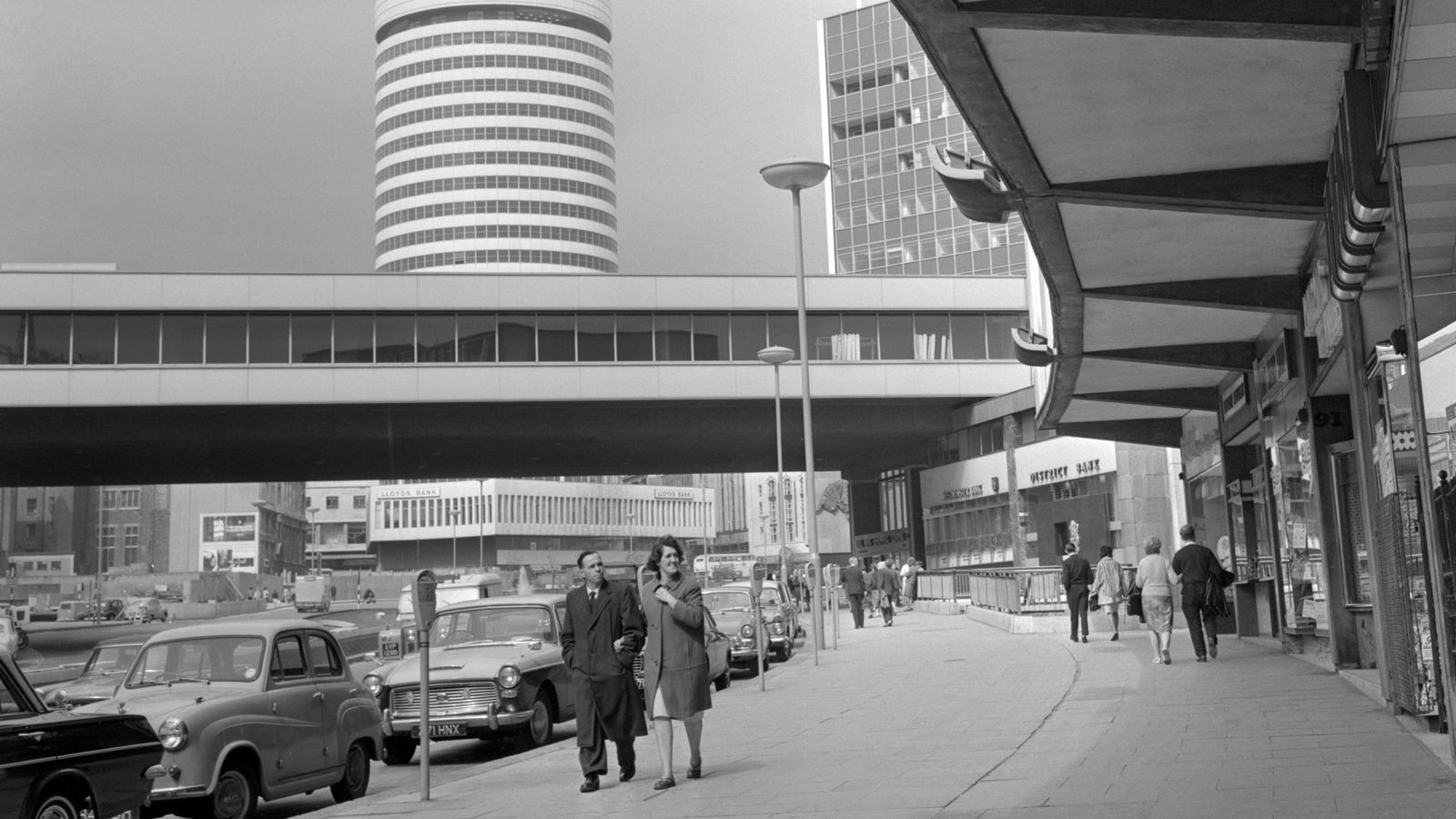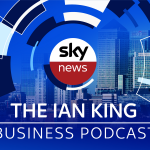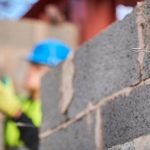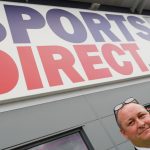It is a company that was born during the Industrial Revolution in Victorian England and which went on to help build the M1 motorway, the Bullring shopping centre in Birmingham, the CIS tower in Manchester and Coventry Cathedral.
Now John Laing, which first floated on the London Stock Exchange in the same year that Everest was conquered and the Queen was crowned, is being taken over for £2bn.
The buyer is the US private equity giant KKR.
In truth, the business that KKR is buying bears little resemblance to the company of popular imagination.
Many people still think of John Laing as a construction company – but that part of the business was actually sold as long ago as 2000.
The company was brought to its knees and nearly collapsed after it completed the Millennium Stadium in Cardiff late and around £30m over-budget.
The then-chairman Sir Martin Laing, great-grandson of the company’s founder, ordered the sale of the civil engineering business for a nominal £1 to the Irish construction magnate Ray O’Rourke.
It was followed by a number of disposals.
In 2002, Laing sold its housebuilding division to George Wimpey Homes for £250m, selling its property division to Kier Developments for £40m the same year.
Its affordable housing arm was sold to its management the following year.
That left the company as an infrastructure investment business, financing and managing projects under the then-Labour government’s Private Finance Initiative, including running the highly-regarded Chiltern Railways service into Marylebone.
This was duly bought by Henderson, the asset management group, for £1bn in 2006.
John Laing returned to the stock market in February 2015, this time with a valuation of £781m, going on to become a renowned investor in and manager of infrastructure projects under government public-private partnership programmes.
Recent projects in which it has invested include a commuter rail project in Denver, Colorado; 236 kilometres of highway in north-eastern Colombia and a number of wind and solar farms in Australia, as well as the country’s largest prison.
One of its more controversial projects during recent years saw it investing jointly with the Japanese industrial giant Hitachi to build new inter-city trains in County Durham, in the north east of England, for the East Coast main line and the Great Western main line.
The Azuma trains were late being delivered and in 2016 the National Audit Office warned that taxpayers faced hundreds of millions of pounds worth of extra costs for the trains.
The company also owns an asset management business, John Laing Capital Management, which runs and advises funds specialising in infrastructure investment.
These include the John Laing Environmental Assets Group, which remains listed on the stock market and JURA Infrastructure Fund, which was previously called the John Laing Infrastructure Fund before being taken over and renamed in September 2018.
Tara Davies, partner and co-head of European Infrastructure at KKR, said: “John Laing has a strong market position and a forty-year track record of delivering major infrastructure projects.
“There is growing global demand for national infrastructure which delivers societal benefit and reflects technological advances and policy priorities across areas such as connectivity, renewable energy and transport.
“Under private ownership and with flexible access to capital, John Laing can take a longer-term view as an owner and operator of assets during the next phase of its growth.
“KKR recognises the high quality of the employees and strength of the management team at John Laing and their importance to the success of John Laing following the acquisition.
“KKR is a long-term investor with deep experience in owning critical national infrastructure assets and we are excited by the opportunity to support the talented team at John Laing to provide capital, a global platform and operational expertise to enable John Laing to accelerate its strategy.”
The takeover of John Laing by KKR is the continuation of a trend in recent months that has seen a clutch of mid-cap UK companies being snapped up usually but not exclusively by private equity firms, particularly from the US.
They include Aggreko, the emergency power supplies equipment provider, which has agreed a £2.3bn takeover by the private equity firms TDR Capital and I Squared Capital.
Another is Signature Aviation, the aviation services group, which is being bought for £3.5bn by former Gatwick Airport owner Global Infrastructure Partners, US private equity giant Blackstone and Cascade Investment Fund, the vehicle which manages the wealth of Bill Gates, the Microsoft co-founder.
A third is UDG Healthcare, which last week agreed to a £2.6bn takeover by another US private equity firm, Clayton, Dubilier & Rice.
Rumours persist that other takeover approaches could be imminent: shares of Meggitt, the aircraft parts maker, jumped last week on speculation it is in the sights of a US competitor.
Not all of these takeover approaches have been successful.
Elementis, the speciality chemicals group, has just seen off a £929m takeover approach from its US rival Innospec, while Marstons, the pub operator, in February successfully repelled a £666m approach from the US private equity firm Platinum Equity.
Meanwhile St Modwen Properties, the regeneration specialist which redeveloped the site of old Longbridge car plant in Birmingham, is currently resisting a £1.2bn approach from Blackstone.
Likewise Sanne Group, the asset management services provider, has just rejected a £1.3bn approach from the private equity firm Cinven.
These rejections highlight the fact that these approaches have, in a number of cases, been opportunistically priced and that company boards are now under increased pressure from shareholders to take a tougher stance.
The takeover of Aggreko, for example, was nodded through last month in the face of opposition by Liontrust Asset Management, its biggest shareholder, which argued that the offer undervalued it.
There are a number of reasons why these companies are attracting interest.
One is bombed-out company valuations in the UK.
The FTSE 250 index of leading UK mid-cap companies is less than 2% higher than the level at which it was trading immediately before the pandemic.
By contrast, the MSCI Europe Mid Cap Index is 11% higher than it was going into the pandemic, while the S&P 400, the leading US mid-cap index, is more than 28% up on its pre-pandemic level.
The global private equity industry is also sitting on more than $1trn worth of ‘dry powder’ which must either be put to use or returned to investors.
The original John Laing was founded in 1848 when James Laing and his wife Ann built a single house in Carlisle – using the profits from its sale to build and sell more.
The takeover of the company now bearing its name is symbolic of a trend that may not prove quite as long-lasting but which nonetheless will have an impact on numerous businesses – and, in turn, on the tens of thousands of people they employ.






















